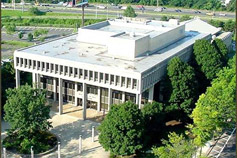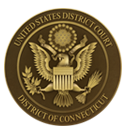United States District Judge for the District of Connecticut
Staff Information
Judge Dooley prefers to receive clerkship applications through OSCAR.

BRIEN McMAHON FEDERAL BUILDING
United States Courthouse
915 Lafayette Boulevard - Suite 417
Bridgeport, Connecticut 06604
Location: Courtroom 2
